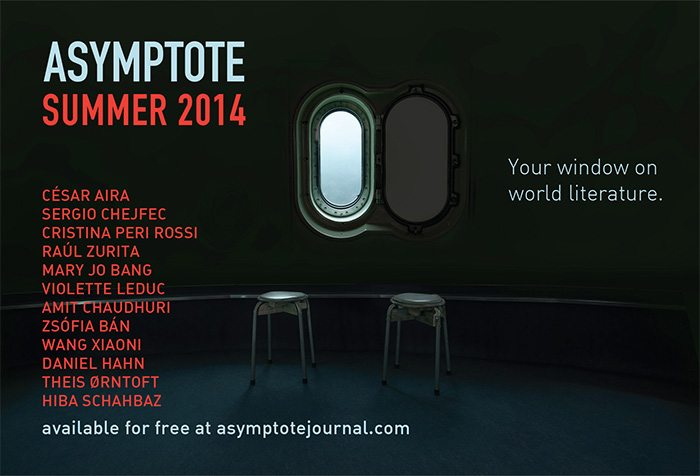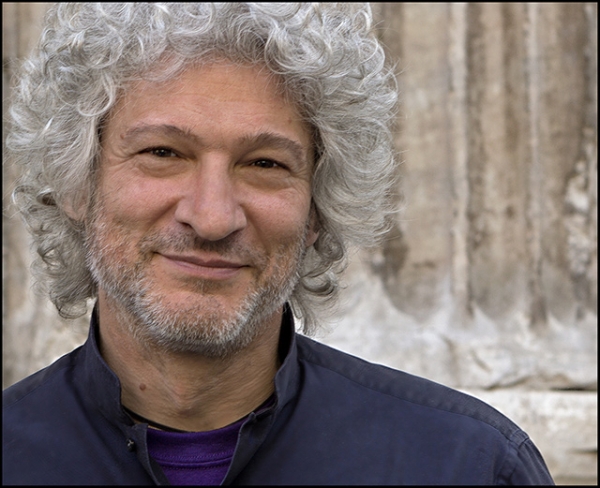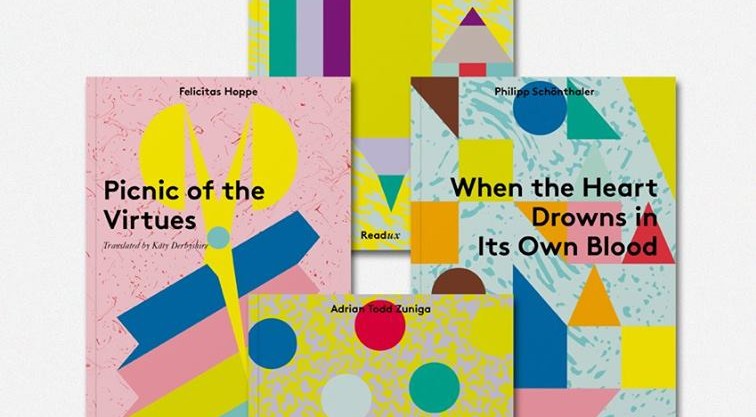You won’t see her on any wanted posters, but literary police officers have made a composite image of Russian femme fatale, Leo Tolstoy’s Anna Karenina (the endeavor reminds us how little we know about our favorite characters’ physical appearances—and why things are better that way). Anna’s popularity came as quite the surprise to many Russian readers at the time, who thought Tolstoy was just too, well, Russian to garner much readership outside his native country. READ MORE…
Posts filed under 'literature'
Weekly News Roundup, 15th August 2014: Anna Karenina’s Face; Happy 30th, Dalkey!

This week's literary highlights from across the world
On the Dearth of South Asian Translations in the U.S. (Part II)
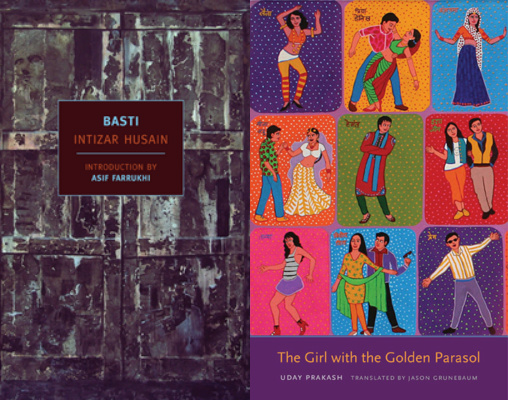
How some South Asian translations are making it—or trying to, at least—in the brutal U.S. publishing market
Read all posts in Mahmud Rahman’s investigation here.
Daisy Rockwell is a painter, writer, and translator. From 1992-2006, she made a detour into academia, from which she emerged with a Ph.D. in South Asian literature and a book on the Hindi author Upendranath Ashk. She had become interested in his writing as a grad student.
In an interview with CNN last year, she said: “Ashk asked me to undertake a short story collection shortly before his death, which I did somewhat reluctantly as I was more interested in translating his long novel, Falling Walls (something I’m finally working on now). It ended up being his dying wish to me, however, so I saw the project through. I finished most of the work around 2000, but had a very hard time finding a publisher, even in India.”
Her translation of Ashk’s Hats & Doctors came out from Penguin India in 2013. About her approach to U.S. publishers, she wrote: “I have tried and so far failed to get my translation published in the U.S., on numerous occasions. I have another work forthcoming and I will try with that too. We’ll see what happens. I haven’t had any explanations. So far I’ve approached them myself. Next up, my agent. Mostly I’ve tried academic presses and small presses. I haven’t tried that many, but since no one maintains a South Asia list, really, the entire thing feels kind of scatter shot and I’ve gotten discouraged easily.” READ MORE…
Publisher Profile: Bloomsbury Publishing

"I don't publish literature from other languages as a translation. I publish it as literature."
Founded in 1986, Bloomsbury Publishing is an independent publishing house dedicated to promoting quality literature. During the editor’s week of the Buenos Aires Book Fair I met with Bill Swainson, Senior Commissioning Editor of the Adult Editorial Division at Bloomsbury Publishing in London.

Hot off the e-press: Asymptote’s July issue is now live! The star-studded issue reads like a cool glass of water, and with good reason: the cold-as-ice cover is inspired by Latin America, currently in the dead of winter and the subject of this issue’s special feature.
Highlights in this Latin-American edition include writerly tributes to Osvaldo Lamborghini (by César Aira), Julio Cortázar (by Sergio Chejfec), and Gabriel García Márquez (by the legend’s very own Portuguese translator Eric Nepomuceno), alongside poetry from Chilean prizewinner Rául Zurita and fiction by Uruguayan author Cristina Peri Rossi. We’ve even got a video trailer for them!
Asymptote Spring 2014 Issue – Out Now!
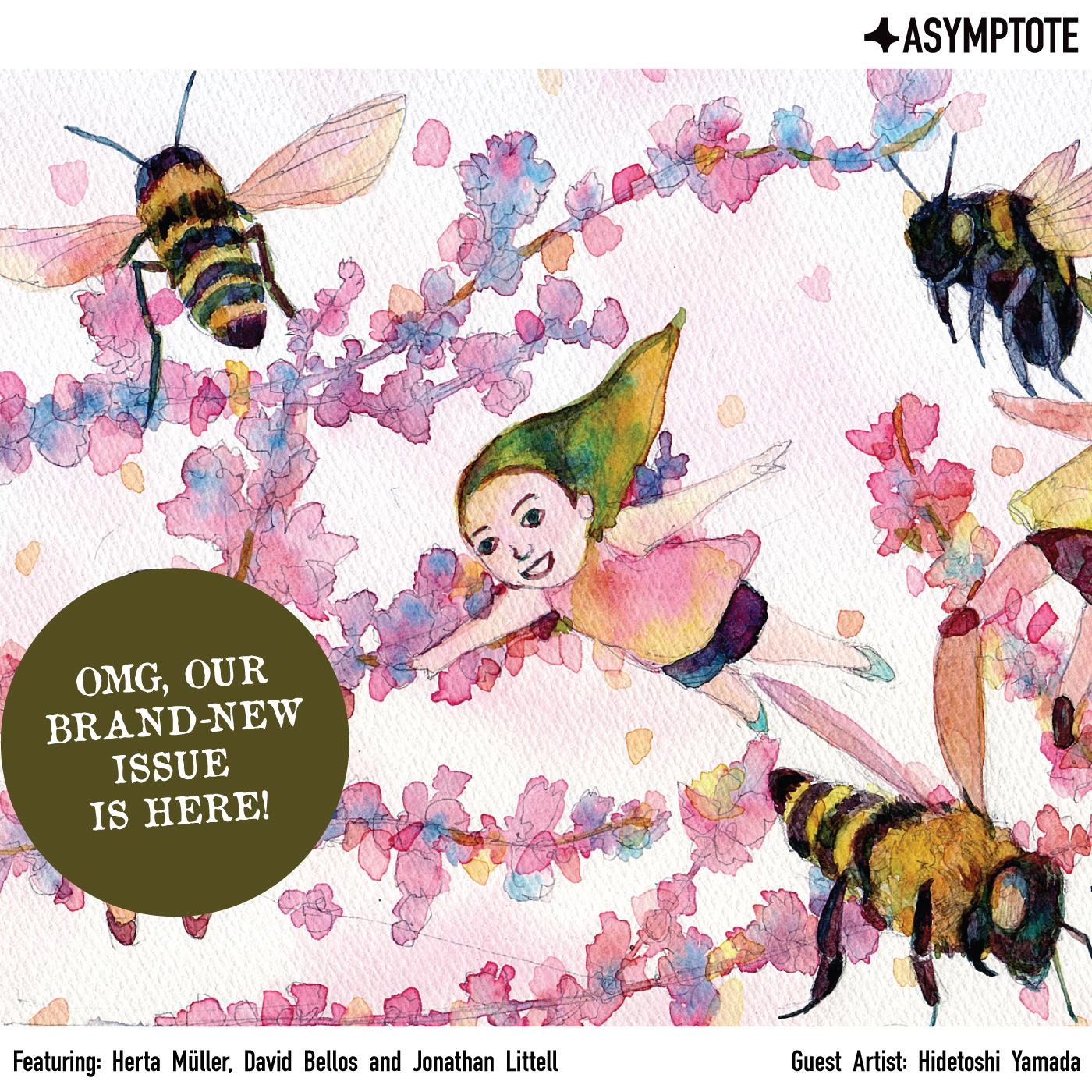
…and it's packed with the most exciting new literary translations, critical pieces, and more from around the world.
What are you waiting for? Highlights from Asymptote’s Spring 2014 issue include new work by Nobel laureate Herta Müller, David Bellos (author of “Is that a Fish in Your Ear?”), and Prix Goncourt-winner Jonathan Littell. Plus, our annual English-language fiction feature spotlights Diasporic literature from Bosnia, China, India, Japan, and Singapore.
Interview with Alex Cigale: Part II
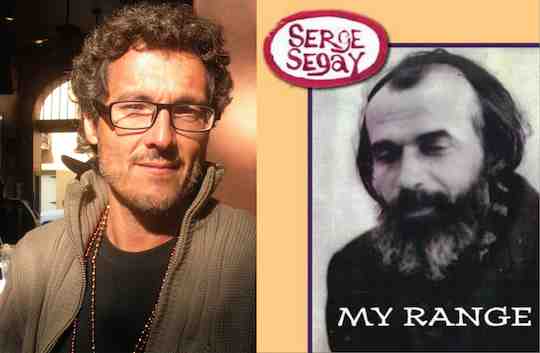
Featuring poetry by neo-futurist poets Serge Segay and Rea Nikonova!
In Part I of Asymptote blog’s interview with Alex Cigale, Cigale discussed the roots of Russian Futurism, its modern inheritors, and politics at play in Russian poetry. Now he discusses his poetry and translations of Russian neo-futurist poets Serge Segay and Rea Nikonova. Read on for new poems by Segay and Nikonova, and to find out about Cigale’s Kickstarter campaign to finish exoDICKERING: Compositions 1963-1985, translated poetry by Serge Segay.
Interview with Alex Cigale: Part I

"As is true for many of my current projects, for the first fifteen years of reading him, my feeling was: Untranslatable."
Asymptote editor-at-large and accomplished poet and translator Alex Cigale is hard at work on a forthcoming book of translations of neo-futurist Serge Segay’s poetry titled exoDICKERING: Compositions 1963-1985, and recently set up a Kickstarter campaign to help him finish his work. In part one of a conversation with Asymptote Blog, Cigale talks about the roots of Russian Futurism and its modern inheritors, politics at play in Russian poetry, and the unique challenge of translating a linguistic system that associates every letter of the alphabet with a feeling-sense (and a color!).
Imagined Bridges: On Ivo Andrić’s The Bridge Over the Drina

What does medieval Bosnia have to do with a destroyed-and-rebuilt Italian bridge? An architect responds.
The word bridge comes from the words log and beam; the earliest bridges were trees that fell over and connected two opposing banks. The wood beams that make this bridge, the Ponte Coperto in Pavia, Italy, are exalted in the vault, their circumference larger than any neighboring tree. The columns that support this vast lid were exhumed from a mountain of granite, their chisel marks and eased edges the distilled labors of a multitude of hands. Up close, they are heavy, rutted, imperfect—but from a distance the columns stand delicately, twenty-four strong on each side of a thickened waist. The roofed colonnade is held by four arches that touch the river in three places below. The sense of solidity underfoot is echoed overhead, shelter and possibility both made new in the connection.
Who is your favorite fictional character of all time?
In this exact moment it is a three-way tie: Achilles, Omar Little (The Wire), and Sherlock Holmes.
How well do you know your neighbor?
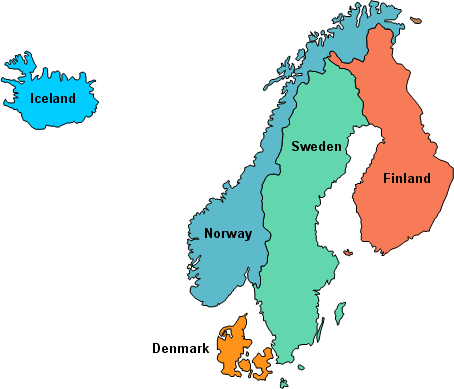
"The linguistic closeness is a false cognate for cultural closeness. And for that, we can't blame the translators."
My chair is uncomfortable, I don’t understand Danish, and it smells like someone in my general vicinity had kippers for dinner. I’m at the Oslo Central Library’s panel discussion on “What is good Scandinavian literature?,” and it isn’t going well. READ MORE…
Last night, at an intimate jazz bar hidden away on one of Berlin’s many courtyards, Readux books presented its gorgeous second set of books. Hardly larger than the next generation of cell phones, these little books are designed for brief escapes, mini-breathers away from your screen (although they’re of course also available as ebooks, who are we kidding?).
There were readings, short discussions, and delicious and plentiful vodka tonics, spring was very much in the air—it’s no coincidence that these books do well on lunch-break benches underneath Berlin’s tender first blossomings. READ MORE…
Asymptote’s 3rd Anniversary Celebrations in March and April (Plus: our New Events Page, with Multimedia!)
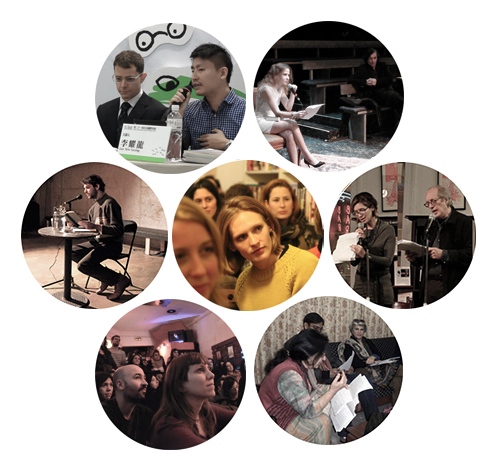
Check out highlights from our past celebrations in London and New York, and don't miss our upcoming events!
We’re thrilled to announce that Asymptote’s globetrotting third anniversary party, which kicked off in London and New York in January, will continue across five continents over the next month—watch our brand-new video trailer below for a taste, and don’t forget to RSVP at our Shanghai (March 29), Philadelphia (March 29), Berlin (April 3), and Sydney (April 11) Facebook Event pages, already live.
In case you can’t make it, don’t fret: we’ve launched a new Events page, where you can find photos, podcasts, videos, and dispatches of all the events we’ve ever organized, as well as an up-to-date pulse for all upcoming events!
Why good translated literature isn’t just for grown-ups

"Для детей нужно писать так же, как для взрослых, только лучше." (Variously attributed to Maxim Gorky, Samuil Marshak, Leo Tolstoy, others.)
In the life of every bibliophile-parent, there comes a moment when each new children’s book begins to seem very much like the last. A blurry train of flat narratives skim past one’s eyes, filled with stock characters, stale language, and an all-too-familiar anodyne tone. Yes, there are brilliant books that stand out, and these are worth reading and re-reading. But there is also a sameness that suffuses English-language books for young people, a shared set of narrative tools and assumptions. READ MORE…


